High Throughput Community Builds Stronger Ties at HTC24 Week
Jordan Sklar and Cristina Encarnacion
7/17/2024

CHTC and the OSG Consortium hosted its second annual Throughput Computing Week in Madison, Wisconsin joined in person and remotely by 388 participants. This year’s themes included dedicated sessions on campus cyberinfrastructure, talks on AI and machine learning enabled by high throughput computing, and tutorials and presentations on the new Pelican Platform project. You can find a detailed overview of HTC24 here.
July 8th-12th marked the Center for High Throughput Computing’s (CHTC) and the OSG Consortium’s second annual Throughput Computing Week, HTC24. A total of 156 attendees in person, and 250 remote participants joined together, representing a total of 122 institutions, to share their contributions and insights for all things high throughput computing (HTC). Campuses from across the country intent on supporting research on their campuses as well as researchers from a wide range of science domains joined the event. Campuses varied significantly in size and experience with throughput computing but shared the common goal to advance research opportunities on their campuses. Similarly, researchers in attendance ranged broadly in their area of research from physics to biology to oceanography, but shared the drive to advance their work through HTC.
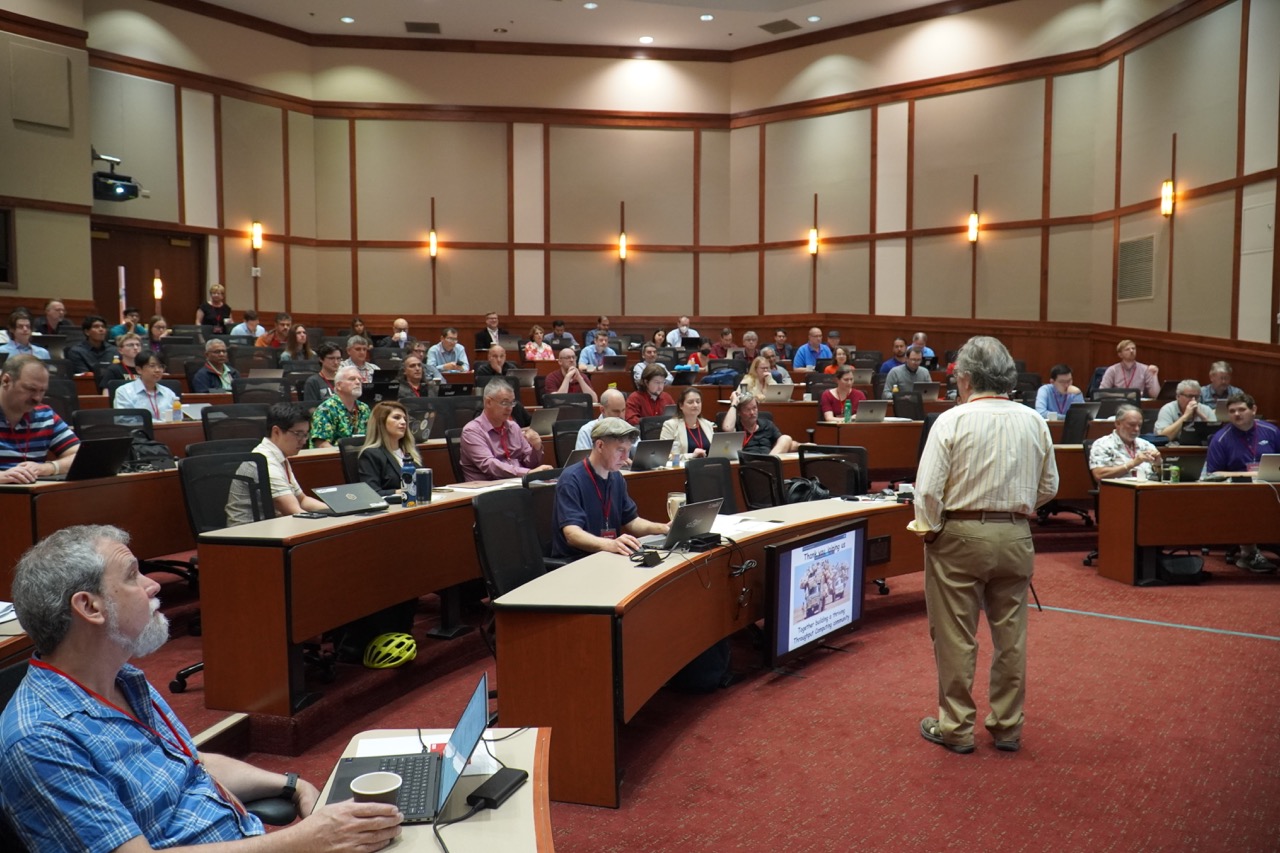
This week-long event included notable moments bringing together the high throughput community. The presentation by HTC24’s keynote speaker Anthony Gitter, Associate Professor and Principal Investigator at the Morgridge Institute for Research, inspired the audience. His talk, “Unleashing the power of protein engineering with artificial intelligence,” explored the intersection of AI and protein engineering in synthetic biology. Gitter discussed AI-guided approaches like Mutational Effect Transfer Learning (METL) for predicting the effects of sequence modifications on protein function. The talk also discussed advancements in supervised learning models and deep mutational scanning techniques, showcasing AI's transformative potential in optimizing protein functionalities for medicine and industry.
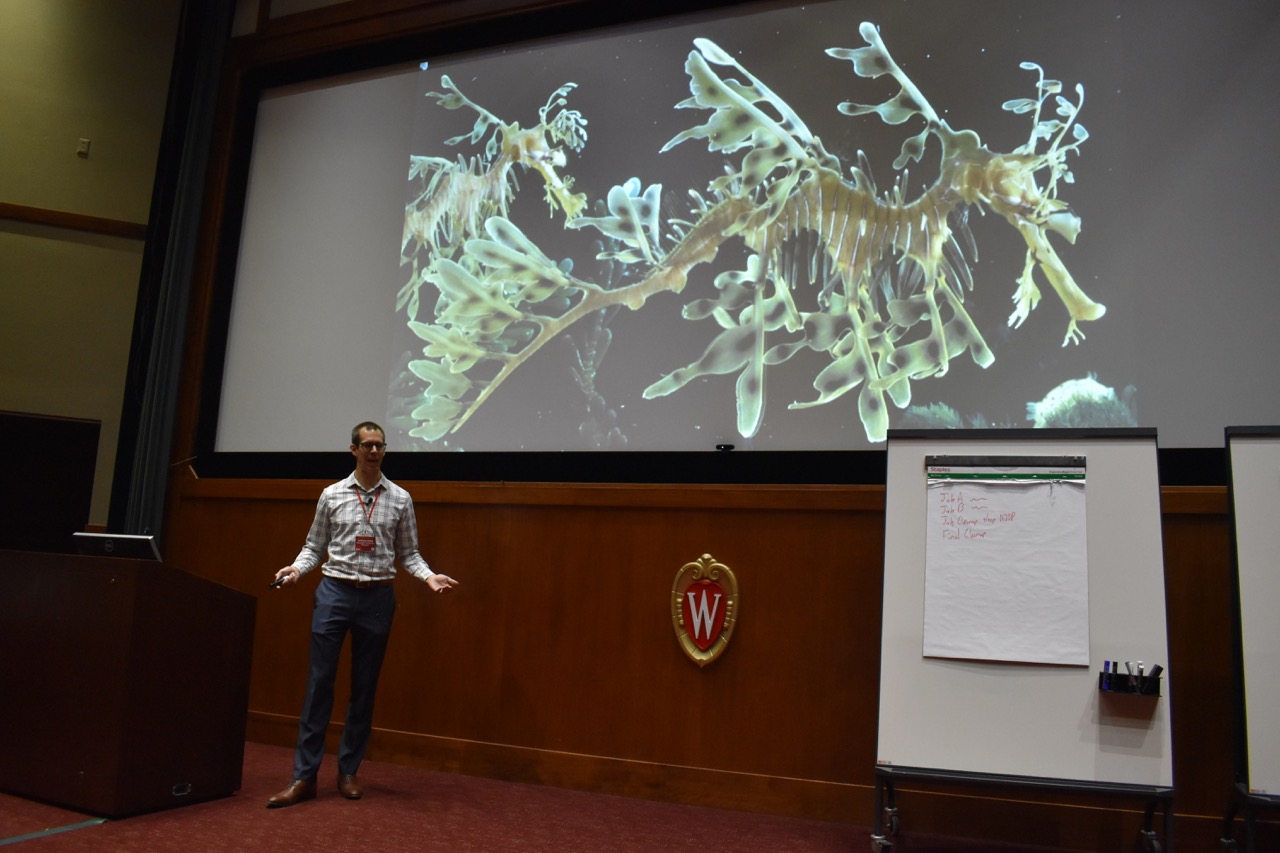
Another highlight of the week was the David Swanson Award presentation. Christina Koch, OSG lead facilitator, was joined by Ken Bloom, of the Holland Computing Center of the University of Nebraska-Lincoln, to present the annual David Swanson Award. David Swanson “was very committed to the goals for the OSG,” Bloom noted. Ronda Swanson joined the session and spoke on David's passion for science and the HTC community. Ronda proudly presented Cort Posnansky, researcher for the LIGO-VIRGO Collaboration and former OSG School student, with the 2024 David Swanson Award. Posnansky shared his research with the community, highlighting the significance of using high throughput computing in the search for gravitational waves from astrophysical collisions.
Miron Livny, Director of the CHTC and Technical Director of the OSG, opened HTC24 Week with a session centered around data and addressing the challenges of making large data sets accessible for research and available to the public or research communities. Along with Livny, OSG Executive Director Frank Wurthwein and Pelican Principal Investigator Brian Bockelman, spoke on the impacts of the Open Science Data Federation (OSDF) and how to further use these resources.

Other sessions concentrated on integrating campuses into the OSPool and the OSDF, featuring talks by National Science Foundation (NSF) Program Director Kevin Thompson, Frank Wuerthwein, OSG Campus Coordinator Tim Cartwright, and Minority Serving – Cyberinfrastructure (CI) Consortium Facilitator Russell Hofmann. Thompson addressed the pivotal role of the Campus Cyberinfrastructure (CC*) Program in advancing networking capabilities essential for scientific research and education (R&E). Focusing on upgrading campus networks and fostering partnerships to optimize cyberinfrastructure for scientific discovery. Wuerthwein transitioned to the challenge encountered by institutions of higher learning that lack the resources or expertise to maintain the batch and storage clusters. He proposed solutions aimed at reducing the total cost of ownership (TCO) for compute and data infrastructure.
Additionally, Tim Cartwright, OSG Campus Coordinator, provided an overview of OSG Campus Services and its tailored support for campuses at various engagement stages with the OSG. Following this, Todd Tannenbaum, HTCondor Software Lead, expanded on Cartwright's themes and introduced the new HTCondor-CE dashboard which will be rolled out to campuses contributing resources to the OSPool this month.
This year there were also dedicated sessions for campuses covering topics including the CC* solicitation process and campuses contributions to the OSPool. These sessions provided campus representatives from those already involved or those considering proposals with the chance to dive deeper into the CC* process. Cartwright touched on the OSG’s campus outreach services, how to connect, and then opened the panel up to the institutions, allowing for a Q&A and ‘stump the experts’ session.
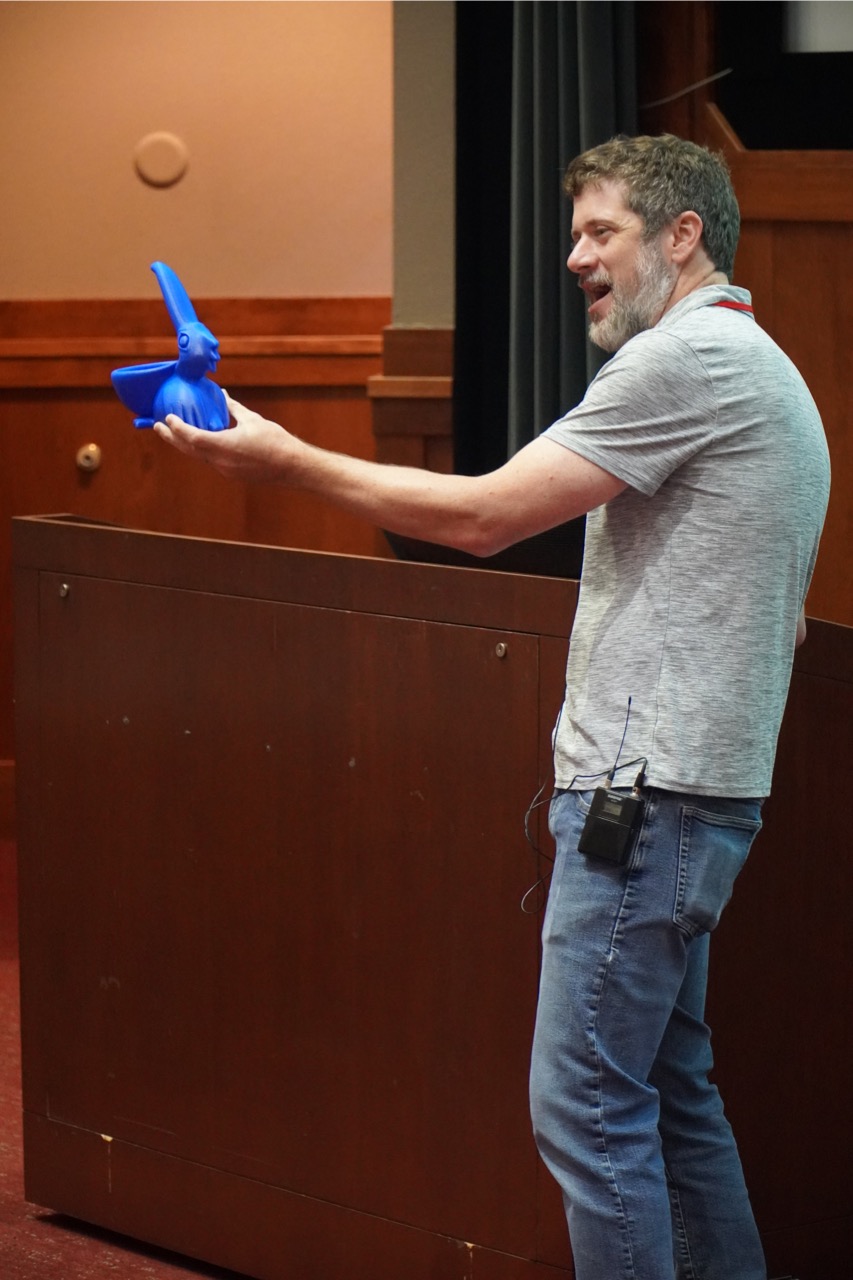
Other sessions highlighted the Pelican Platform, featuring insights from Brian Bockelman and other Pelican team members. They addressed operational aspects of the OSDF and integration methods with Pelican. The session also playfully introduced the new HTC award, a 3-D printed pelican tentatively named "The Beakelman" or "The Brian," recognizing lightning talk presenters.
To foster engagement and feedback, Tuesday sessions concluded with “Lightning Talks” from the community, offering ideas and suggestions. Seven CHTC Fellows also showcased their work and faced challenging questions from the engaged audience.

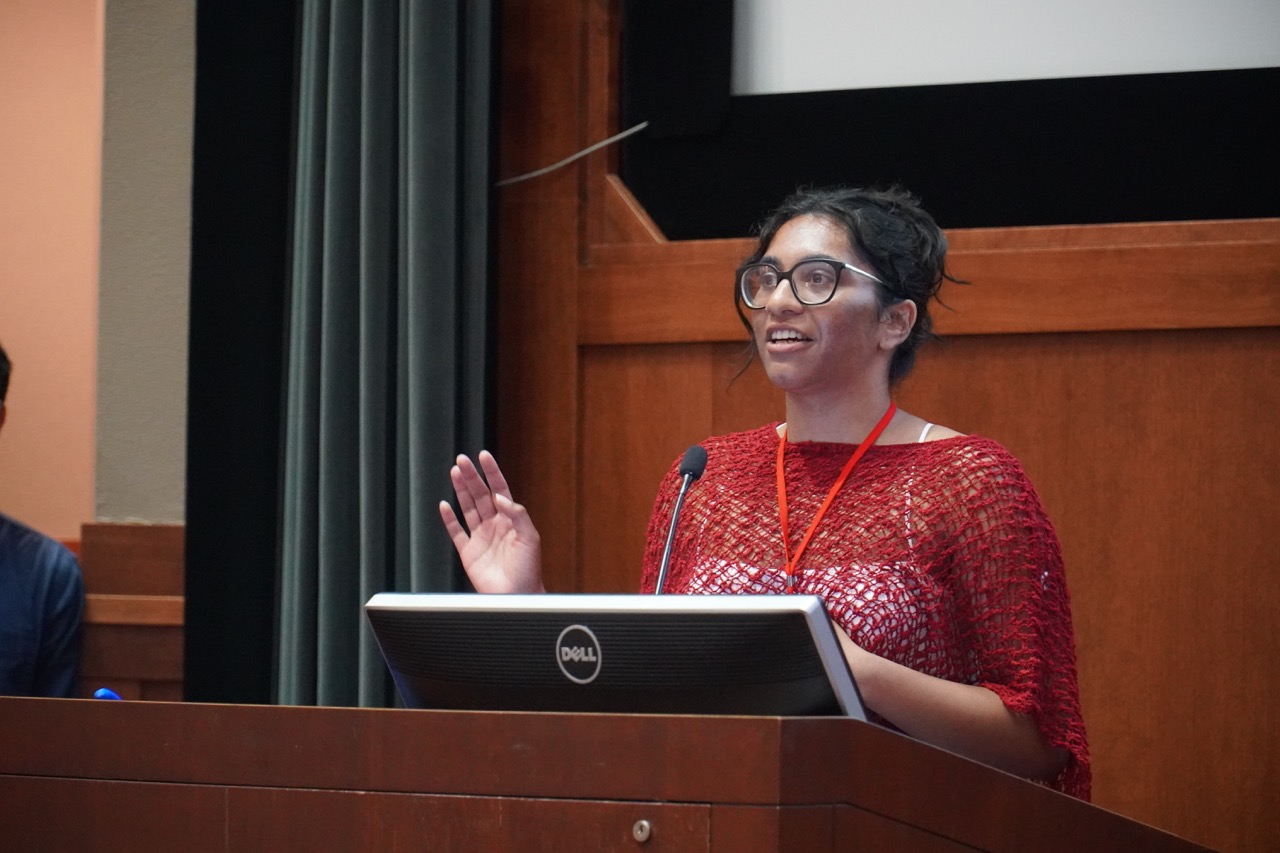
Fellows Pratham Patel and Neha Talluri presenting their projects.
Adding some lighter notes, CHTC’s Todd Tannenbaum and Greg Thain introduced the Early Late Night Show, a Late Night Show parody, with a CHTC twist. Host of the show, Tannenbaum, light heartedly interviewed Miron Livny, Frank Wurthwein, and Brian Bockelman.
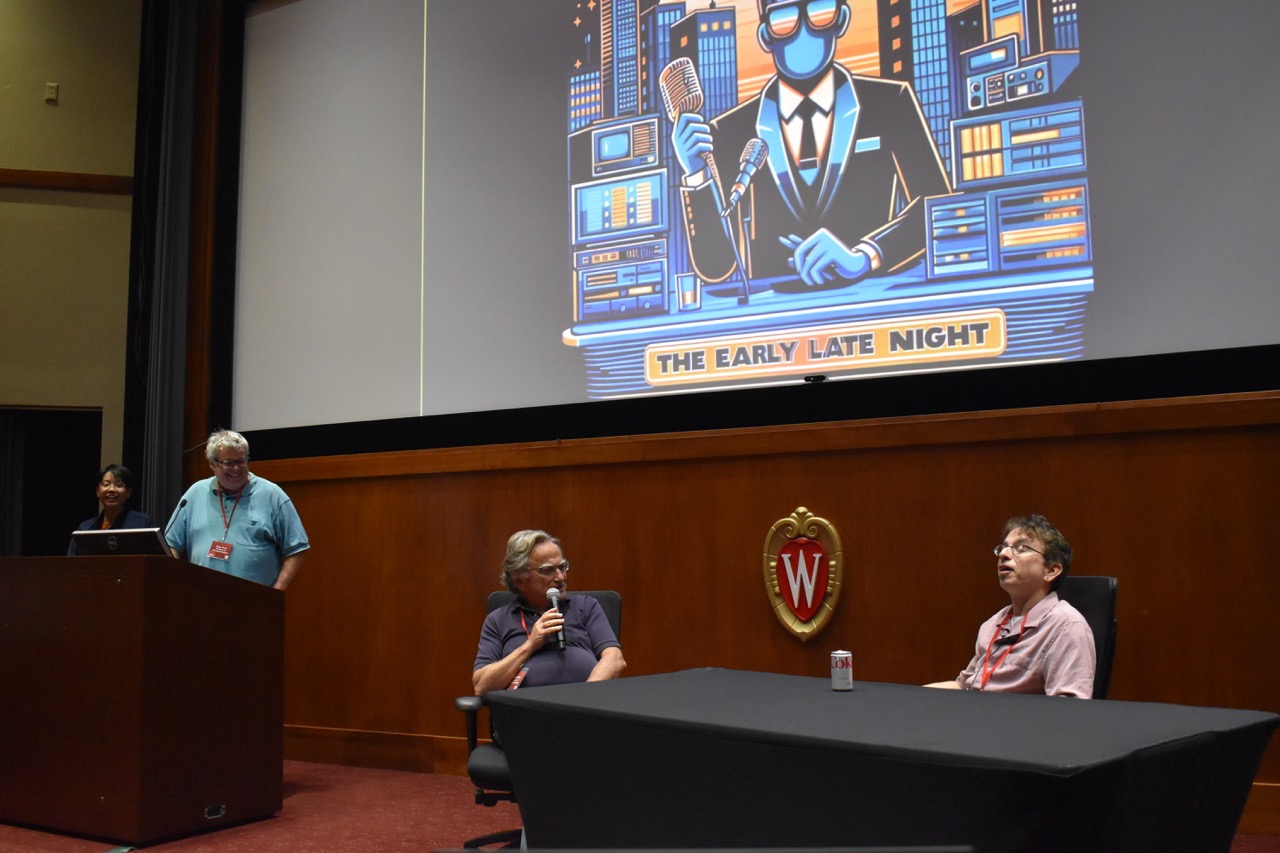
As well as the educational and comedic segments of HTC24 Week, participants also took part in activities outside of the meeting rooms, allowing them to strengthen their relationships with each other and to develop robust ties between collaborating working groups. Following Tuesday's session, CHTC’s Todd Tannenbaum led a group on a bike ride around the UW Arboretum. Participants also had opportunities throughout the week to kick back at the Memorial Union Terrace, kayak on Lake Wingra, and sing karaoke. The week wasn't without its unexpected moments either—like the memorable evening where 12 conference-goers and staff found themselves unexpectedly stuck in an elevator. They were rescued by firefighters who opened the elevator hatch and provided a ladder for them to escape. This unplanned event prompted shared jokes and camaraderie, leading to suggestions that for next year's HTC week, an elevator bonding session or escape room should be added to the official social schedule.
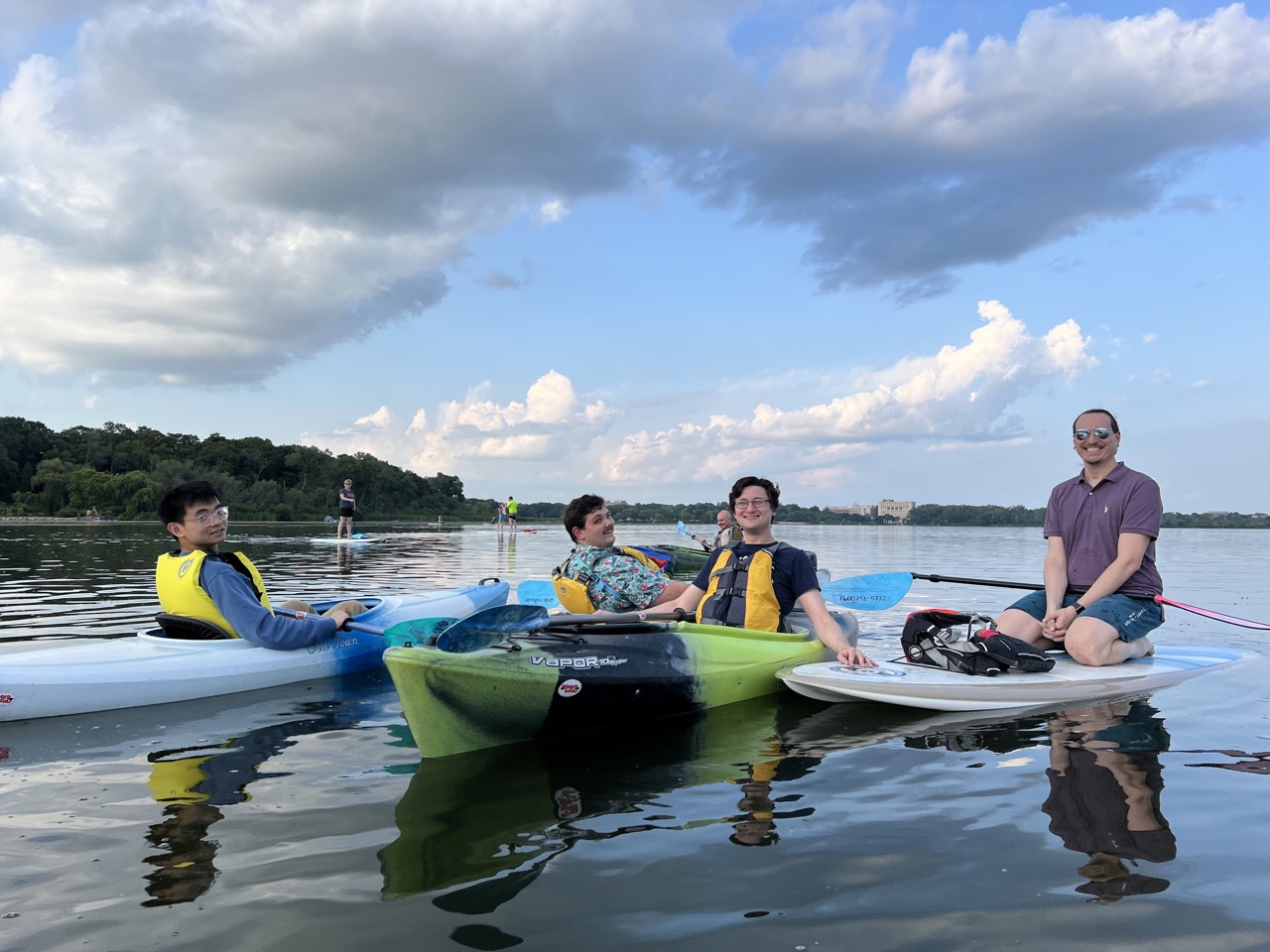
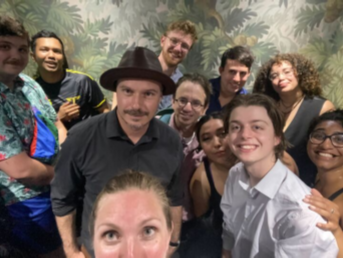
Participants kayaking (on the left), and an image from the elevator (on the right).
Beyond the presentations, the week provided valuable opportunities for meaningful connections between the CHTC and OSG teams and HTC24 attendees. Discussions over lunch, during coffee breaks and throughout the event provided a chance for participants to learn more about each other and their work, fostering stronger connections and friendships that are sure to endure.